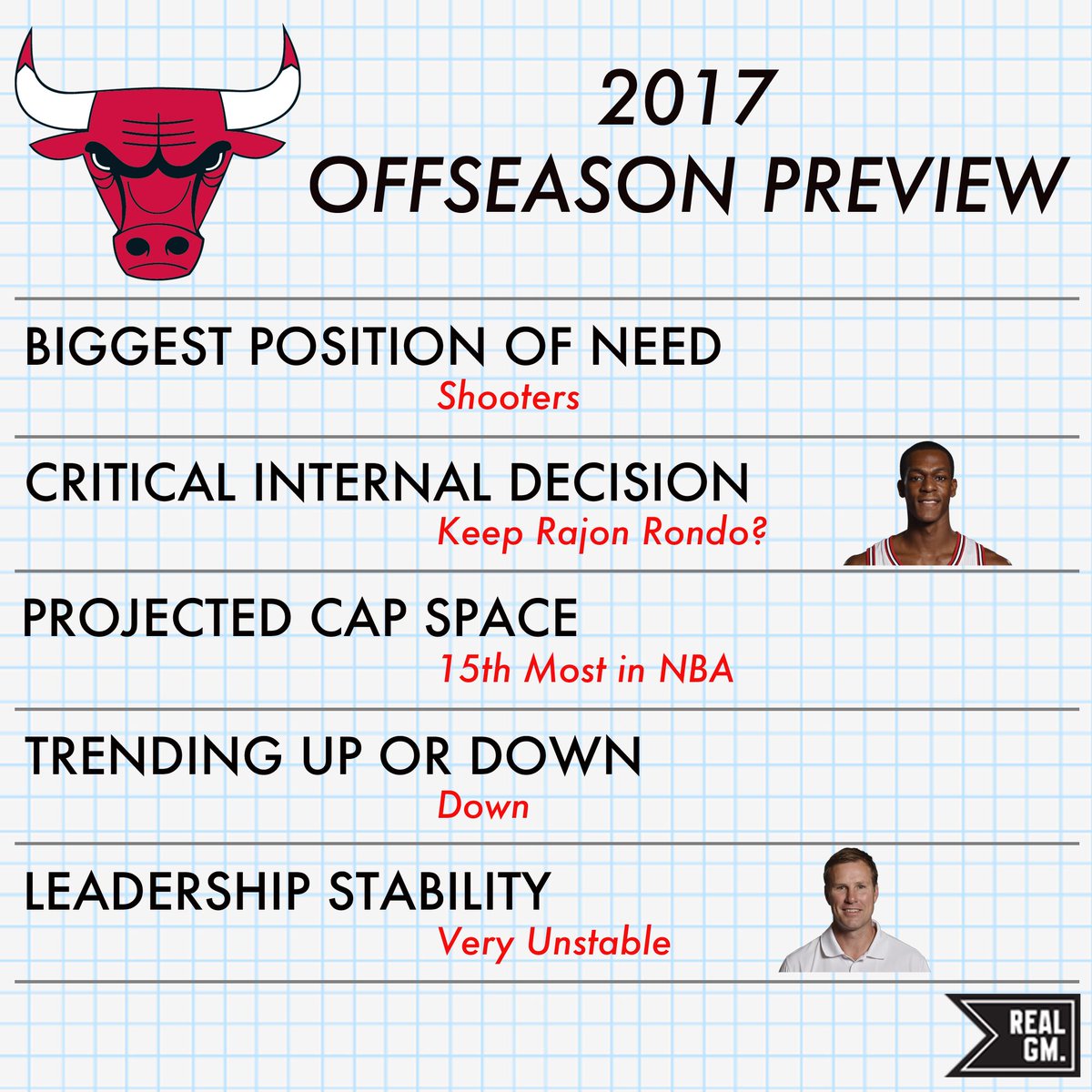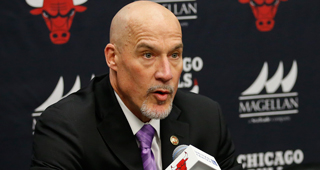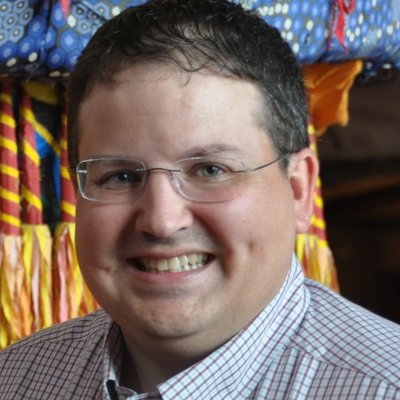The Chicago Bulls returned to the playoffs in 2017 after a one-year absence in 2016 that broke a seven-year streak. Chicago snuck in with a 41-41 record by virtue of owning the head-to-head tiebreaker with the Miami Heat. The Bulls then proceeded to take a 2-0 series lead over the top seeded Boston Celtics, before dropping four straight following an injury to Rajon Rondo.
That the Bulls even got there was somewhat of a shock. After an offseason that kicked off with trading Derrick Rose to the New York Knicks for a package that included Robin Lopez and Jerian Grant, Chicago was the closest thing to a throwback team the NBA has seen in quite some time. Due to the subsequent roster construction throughout the offseason, the Bulls were left with a team whose shooting splits heavily favored scoring inside in the paint and the mid-range area. Chicago attempted the second fewest three-pointers in the NBA and the third most two-pointers. They were also 19th in the league in free throw attempts. Additionally, the Bulls were in the bottom third in pace. In an era where teams emphasize pace and space, Chicago bucked the trend by playing slow and taking most of their shots inside the arc.
A primary reason for this was the backcourt of Dwyane Wade and Rajon Rondo. Both players were signed in the summer, after the Bulls traded Rose and renounced their other free agents. While the idea was to form a “three alphas” lineup with Jimmy Butler as the third alpha, the Bulls instead created an offensively limited team. By playing Taj Gibson and Robin Lopez as the other two starters for the majority of the season, Chicago rarely attempted any shots outside of the 15-18 foot range.
On the other end, the defense was quite strong and that kept the Bulls in games for most of the season. Unfortunately, the defense was uneven following a trade deadline deal that saw Gibson and Doug McDermott, the team’s best shooter, traded to the Oklahoma City Thunder for Cameron Payne, Joffrey Lauvergne and Anthony Morrow. Payne was instantly anointed the point guard of the future for Chicago, but played in just 11 games for the Bulls. This was partially due to Payne adjusting to his new team, but largely influenced by a point guard grouping that included Rondo, Grant and Michael Carter-Williams, who had been acquired in a trade with the Milwaukee Bucks for Tony Snell.
That glut of point guards seems to be the next task facing John Paxson and Gar Forman this summer. The first task was decided upon when the Bulls chose to retain Fred Hoiberg as their head coach. Many speculated that after two years of hovering around the .500 mark and some sniping from his players, that Hoiberg might be best suited for the college game. But owner Jerry Reinsdorf is loath to pay people not to work for him, and the team chose to retain Hoiberg. However, barring major improvement, this is probably Hoiberg’s last chance with Chicago.
As for players, first up is Rondo. He has a contract for $13.4 million, but is only guaranteed for $3 million before becoming fully guaranteed on June 30th. As late as mid-March, it seemed like a guarantee the Bulls would look to trade Rondo at the draft, or would eat the $3 million guaranteed to him. Then a strong close to the season and a solid playoff performance, before breaking his thumb, seems to have changed the tune. Chicago is reportedly now leaning towards keeping Rondo.
The next point guard on the docket is Carter-Williams. The former Rookie of the Year has fallen from grace and struggled with both Milwaukee and Chicago after leaving Philadelphia. The likely course of action is that the Bulls don’t even tender Carter-Williams a qualifying offer and let him become an unrestricted free agent. Given the presence of Rondo, Payne and Grant, it is hard to see any avenue for Carter-Williams to return.
Chicago has three other potential restricted free agents, giving them a potentially NBA-leading four RFAs this summer. The other three are big men: Nikola Mirotic, Cristiano Felicio and Lauvergne. Lauvergne will likely be handled similar to Carter-Williams and non-tendered. He doesn’t fill a need for Chicago and could be a threat to simply sign his qualifying offer, which would needlessly tie up money for the Bulls. The other two are different stories.
After patiently waiting for Mirotic to come stateside, the Bulls have gone on a roller coaster ride over the last three years with the floor spacing big man. Mirotic is a solid outside shooter and good rebounder, but shows a maddening tendency to take bad shots at even worse times. He’s not afraid to let one fly from any distance or angle, on balance or not. Given Chicago’s need for shooting, especially from their bigs, it is likely they’ll give Mirotic a qualifying offer to retain match rights as a RFA. Barring an unexpectedly large offer sheet from another team, Mirotic will likely return.
Felicio has gone from project to serviceable backup big in his first two years in the NBA. He will also get a qualifying offer and the Bulls will hope to work out a long term deal before another team can extend him an offer.
Chicago has three other players to deal with this summer. The first two are guards Isaiah Canaan and Anthony Morrow. Canaan has a minimum contract that is guaranteed for just $200,000, provided he’s waived before June 30th. He was also solid in the playoffs after Rondo went down and the Bulls can use his shooting, but he’s really a shooting guard in a point guard’s body. Because of this, his roster spot is a bit more up in the air. Morrow was a throw-in for salary matching purposes in the trade deadline deal. As shooting specialists on a team starved for shooting, both could return. More likely is that Morrow moves on to take a bench role with a contender, while Canaan comes back to fill his role as a deeper bench option.
Dwyane Wade is the Bulls' final potential free agent and their most important. Wade has a player option for $23.8 million. While he’s no longer the player he once was, Wade remains a solid scorer and gives Chicago a presence in the backcourt that their other players lack. Throughout the year, Wade gently ceded star status to Butler. He seemed content to play the sidekick role in his 14th season and understood his place in the pecking order. And, on occasion, he’d show up big enough to remind everyone he can still come up with a huge game when necessary. All signs point towards Wade exercising his player option and returning, as he’s unlikely to make anything on the open market approaching the kind of money he is schedule to make.
If Wade opts in and Rondo returns, Chicago is capped out and limited to using the non-taxpayer and bi-annual exceptions to improve the team. Add new deals for Mirotic and Felicio and you have an expensive roster that is older than you would like for a non-title contender. And some of the younger players who need minutes, like Payne, Bobby Portis and last year’s draftees Denzel Valentine and Paul Zipser, are blocked by veterans in the rotation.
Chicago explored trading Jimmy Butler at the trade deadline before pulling back, either due to a desire to keep him or not getting an offer they deemed fair, depending on which reporting you choose to believe. If the Bulls struggle once again, you can expect the topic of trading their best player to be brought back up. This time around, Chicago might be enticed to jump. They could have close to max cap space in the summer of 2018 and could choose to rebuild quickly around draft picks and youth that they would get in exchange for Butler and cap space. For a franchise that hasn’t historically gone the rebuilding path, it would be a departure from the norm. But it might be the quickest way out of the middle of the pack and back to contending for titles.
Offseason Details
Guaranteed Contracts (7): Jimmy Butler, Jerian Grant, Robin Lopez, Cameron Payne, Bobby Portis, Denzel Valentine, Paul Zipser
Partial/Non-Guaranteed Contracts (2): Isaiah Canaan, Rajon Rondo
Potential Free Agents (6): Michael Carter-Williams (RFA), Cristiano Felicio (RFA), Joffrey Lauvergne (RFA), Nikola Mirotic (RFA), Anthony Morrow (UFA), Dwyane Wade (UFA – Player Option)
“Dead” Money on Cap (0): None
First Round Draft Pick(s): #16
Maximum Cap Space: $52,303,896
Projected Cap Space: None. $4,416,546 over




